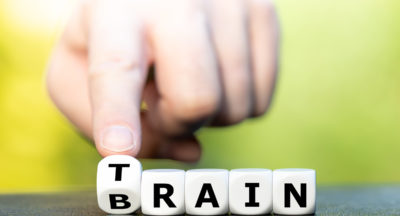
What Exactly Is A Learning Specialist?
Learning Specialist – Isn’t that just a tutor?
By Ari Goldstein, Ph.D.
Tutors have existed for as long as man. Elders helping the younger generation learn the skill sets necessary to survive in their environment. Of course, early tutoring focused more on gathering food and creating shelter than on memorizing math tables. Fast forward to our test driven and memorization based school curriculum. Students have to absorb and repeat mountains of information on a regular basis. They have to work quickly, efficiently, and a strong competitive sense emergences in most classrooms from an early age. Most parents feel their children need to keep up, and some are concerned with even “Average” performance. As a result, Americans spend billions of dollars each year for tutoring support for their children.
A tutor is a very useful tool for many students. Tutors help their pupils learn facts, study for tests, and become more fluent and efficient with a range of academic tasks. But what happens when those academic deficiencies are driven by difficulties processing information? Does the tutoring work? My clinical experience would indicate that often it does not. When students come to Cognitive Solutions Learning Center in Chicago, many are initially assessed to better understand their processing and functioning through a comprehensive evaluation. Having information about how the brain processes information is highly useful when planning how to best help a student remediate areas of processing difficulty. Specialized interventions can be designed which are aimed at developing a student’s underlying cognitive and processing deficiencies. This makes the process of tutoring much more targeted and effective.
Tutors come in all shapes and sizes, with a wide variance in education, background, and experience. They range from high-school and college students looking to make some extra money to retired teachers who love helping children, and everywhere in between. How well a tutor can help a student often depends on their experience and their ability to develop a strong rapport. But what they can do is often limited. Without understanding of and intervention with underlying processing deficiencies, many students will not make the expected levels of progress they are working so hard to gain. This frequently leads to frustration on the part of the student, the tutor, and the teachers and parents.
A learning specialist is someone who typically possesses a minimum of a Master’s Degree in a special education related field. The have extensive experience reading and interpreting psychoeducational and neuropsychological evaluations, and are able to use these documents to create intensive and effective remediation programs. Many work as special education teachers in the school system, and develop private interventions for students in after-school hours. Learning specialists work to strengthen underlying brain processing, at the same time helping the student develop a strong academic skill base.
A student who has difficulty reading will often begin work with a tutor. They will typically work to develop stronger fluency, decoding, and compression skills. But what if the student isn’t making progress in this work? What if all the repetition and multi-sensory teaching are not working? That is where an understanding of processing can better assists a learning specialist in their work. Many students who struggle to read have some form difficulty with their their auditory, visual, or executive processing systems. A learning specialist will work to develop reading skills in a manner similar to a tutor, however they will also design and implement a targeted intervention to address any underlying processing deficiencies. This might include auditory processing work, expressive or receptive language development, visual tracking and visual motor work, or executive skills development. Strengthening how the brain processes information while at the same time developing academic skills makes for a powerful and effective remediation program. The same processing difficulties can be true for students with a range of learning disabilities, including dyslexia, dysgraphia, and dyscalculia. Often times, difficulties processing information through one of the systems mentioned is a strong underlying factor in their struggles to learn. Students diagnosed with Attention Deficit Hyperactivity Disorder (ADD/ADHD) often have executive deficiencies that can be strengthened through targeted work with a learning specialist.
While tutoring is beneficial for many students who simply require some extra practice or “brush up” on skills, it is often ineffective for students who struggle to develop learning skills. These students frequently see far better outcomes when their academic interventions are designed more broadly to target and strengthen areas of their brain that aren’t properly processing the world around them.
At Cognitive Solutions, many students come to us after multiple unsuccessful attempts at tutoring. Our learning specialists create highly individualized remediation plans, and work with students to strengthen academic functioning, processing capacities, and self-esteem. For more information on Cognitive Solutions Learning Center in Chicago, please feel free to visit us online at www.helpforld.com.
Related Posts
How Can You Prevent Adderall Withdrawal?
Withdrawal symptoms can occur when an individual stops taking Adderall, which can...
How Can I Improve My Anxiety?
Anxiety is a common and often debilitating mental health condition that affects...
How Neurofeedback Treats Traumatic Brain Injury, Anxiety, Depression, And More
Imagine if you and your therapist could actually see what your mental illness...
Testimonial – A.O.
Cognitive Solutions has been an amazing asset to our family. I found CSLC on the...




